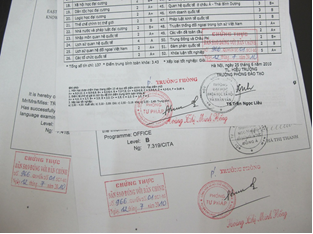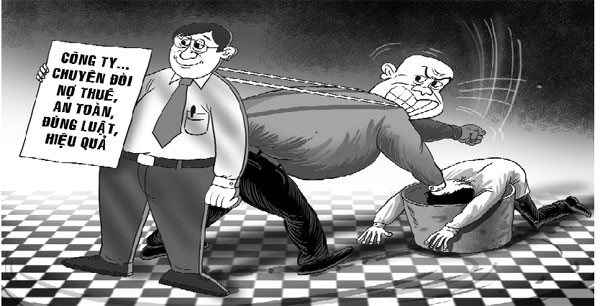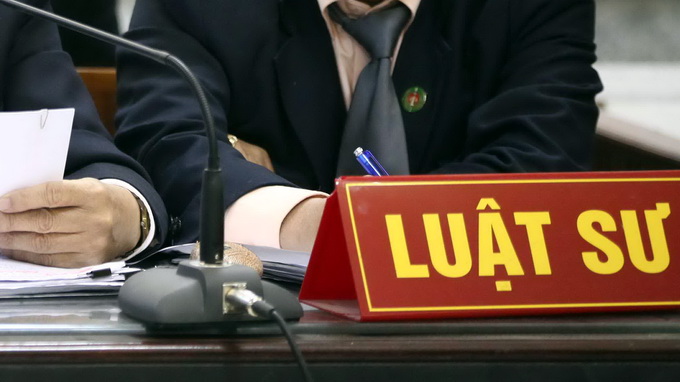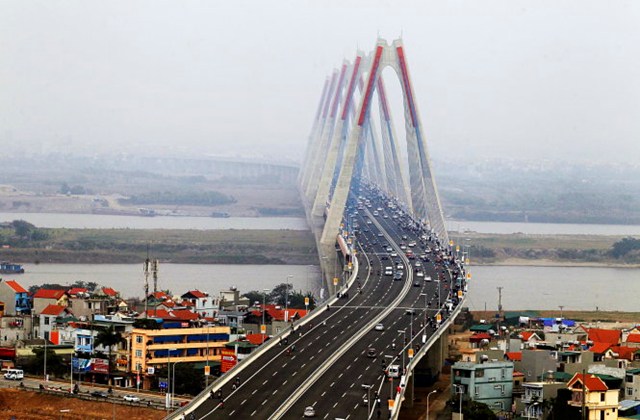On June 20, 2012, the National Assembly passed the Law on Handling Administrative Violations 2012 (hereinafter referred to as the Law on Handling Administrative Violations 2012), which took effect from July 1, 2013. Compared to the Ordinance on Handling Administrative Violations 2002 (which was amended and supplemented in 2007 and 2008), the Law on Handling Administrative Violations 2012 has many new provisions regarding the forms of handling, the authority to handle administrative violations, the sanctioning procedures, the implementation of decisions on sanctioning administrative violations, as well as the level of monetary fines...

View of a legal aid training session for the Legal Club
Firstly, regarding general provisions: The Law on Handling Administrative Violations 2012 has identified acts prohibited in the handling of administrative violations (Article 12), emphasizing prohibited acts for those authorized to handle administrative violations such as: withholding cases with criminal signs to handle as administrative violations; exploiting position or power for harassment, demanding or receiving money or property from violators; condoning, covering, limiting the rights of administrative violators when imposing administrative sanctions or applying administrative measures; not imposing administrative sanctions, not applying remedial measures, or not applying administrative measures; imposing administrative sanctions, applying remedial measures or administrative measures not promptly, not strictly, not within the correct authority, procedure, or regulated entities... Article 17 explicitly stipulates the responsibility for managing the enforcement of laws on handling administrative violations: the Government of Vietnam uniformly manages the enforcement of laws on handling administrative violations across the entire country. The Ministry of Justice is responsible to the Government of Vietnam for managing the enforcement of laws on handling administrative violations.
Secondly, regarding forms of administrative sanctions and remedial measures: Compared to the Ordinance on Handling Administrative Violations, the Law on Handling Administrative Violations 2012 has added 02 main forms of sanctions such as: revoking licenses or practicing certificates for a limited period or suspending operations for a limited period; confiscating administrative violation exhibits, means utilized for administrative violations (Article 21); Several remedial measures caused by administrative violations such as compelling the correction of false or misleading information; forcing the removal of violating elements from goods, means, items; forcing the recall of substandard products, goods; forcing the return of unlawful profits obtained from the violation (Article 28).
Thirdly, regulations on monetary penalties: Articles 23 and 24 of the Law on Handling Administrative Violations 2012 have adjusted the monetary penalty framework, wherein the minimum penalty increases from 10,000 VND to 50,000 VND, the maximum penalty increases from 500 million VND to 2 billion VND. The maximum penalty of up to 2 billion VND is specified for 5 fields: management of the sea, islands, and continental shelf of the Socialist Republic of Vietnam; management of nuclear, radioactive substances, atomic energy; currency, precious metals, gemstones, banking, credit; exploration, exploitation of petroleum and other minerals; environmental protection, applied to violating organizations in these fields.
Fourthly, the authority to impose administrative sanctions: The Law on Handling Administrative Violations 2012 stipulates the positions with the authority to impose sanctions inherited from the current Ordinance (from Article 38 to Article 51) and adds some titles such as Head of Immigration Management, Head of Political Security Protection, Head of Economic Security, Head of Cultural, Ideological Security, Head of Information Security; individuals tasked with implementing specialized inspections... Compared to the current Ordinance on Handling Administrative Violations, the Law on Handling Administrative Violations 2012 does not prescribe a fixed monetary penalty for each sanctioning title but stipulates according to a percentage compared to the maximum penalties regulated in Article 24.
Fifthly, regarding the procedures for penalties and enforcement of administrative sanctions: The Law on Handling Administrative Violations 2012 stipulates circumstances that must be verified when considering imposing administrative sanctions (Article 59) and the right to present arguments of individuals, organizations with violations in cases subject to forms of sanctions such as revoking licenses, practicing certificates for a limited period or suspending operations for a limited period or imposing the maximum monetary penalty from 15,000,000 VND or more for individuals, from 30,000,000 VND or more for organizations (Article 61). These new regulations aim to ensure objectivity, democracy in the process of imposing administrative sanctions, contributing to minimizing complaints in the process of imposing administrative sanctions. Article 72 stipulates that the agency of the person with authority to impose administrative sanctions is responsible for publicly announcing administrative sanctions on food safety, product quality, pharmaceuticals, medical examination, treatment, labor, construction, social insurance, health insurance, environmental protection, taxation, securities, intellectual property, measurement, production, selling counterfeit goods that cause significant consequences or severely impact public opinion.
Sixthly, regarding administrative measures: Regarding the subjects of application, the Law on Handling Administrative Violations 2012 limits the application of measures to juveniles aged 12 to under 14; eliminates the subject of habitual prostitution for individuals from 14 years old with a fixed residence... Article 90 adds subjects to educational measures at communes, wards, commune-level towns for individuals aged 12 to under 14 committing acts with signs of very serious offenses intentionally as prescribed in the Penal Code and individuals aged 14 to under 16 committing acts with signs of serious offenses intentionally as prescribed in the Penal Code. Regarding the authority to issue administrative measures: The Law on Handling Administrative Violations 2012 stipulates that the Chairman of the People's Committee at the commune level has the authority to issue educational measures at communes, wards, commune-level towns; the district-level People's Court has the authority to issue measures of sending to reformatory schools (Article 91), sending to compulsory education establishments (Article 93), sending to compulsory detoxification centers (Article 95).
The Law on Handling Administrative Violations was born out of objective necessity; it is a legal document that regulates the field of handling administrative violations. Therefore, it needs to be propagated, thoroughly implemented, and effectively enforced, contributing to ensuring administrative order and discipline; maintaining security, order, and social safety; ensuring the legitimate rights and interests of citizens in line with the socio-economic development conditions of the country; meeting the requirements for reforming the state machinery; effectively combating against administrative violations in the current period.
Source: Nguyen Van Bay - Kon Tum Department of Justice
 Article table of contents
Article table of contents









